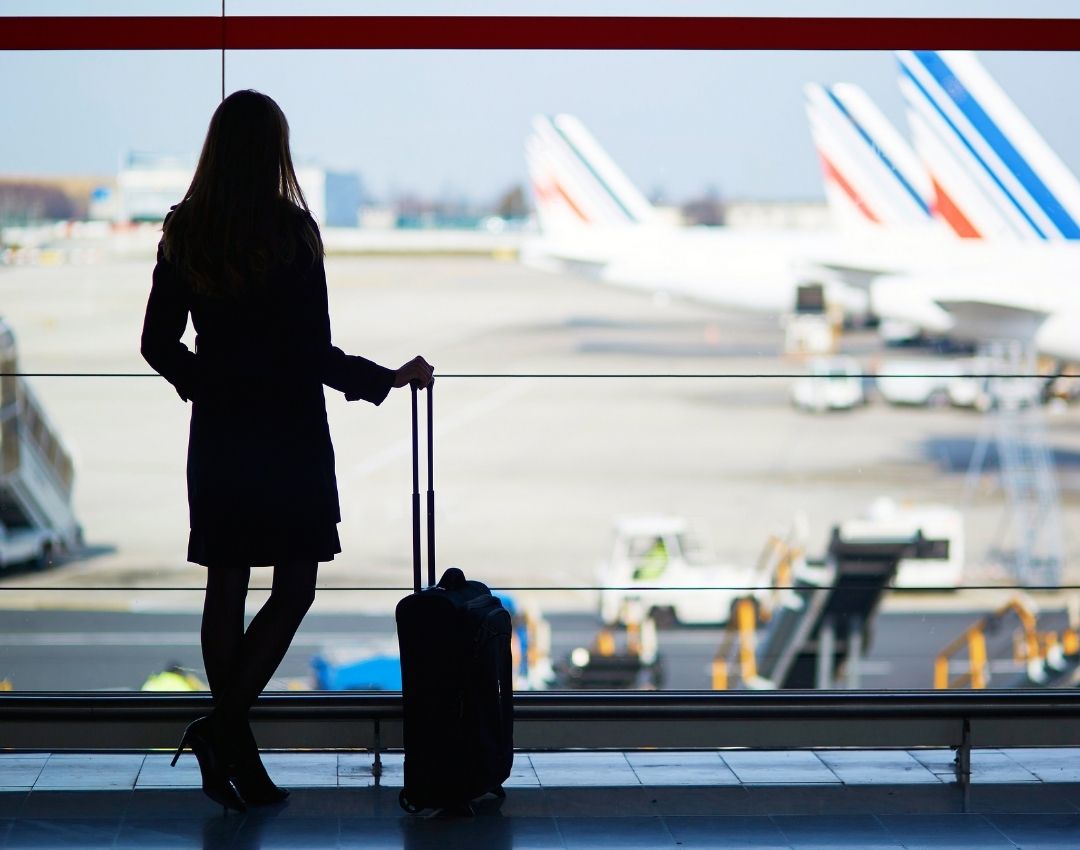While travelling solo can be an incredible experience, women can potentially face higher risks. Yet there are numerous ways, before and during travel, to reduce the risks women face while travelling alone on business trips. We partner with risk management company, Crisis24, to power our unique travel risk platform, R&M/Protect, and asked its experts to share some guidance and safety tips.
Before you travel
· Review your documentation, including travel insurance, for validity and create copies of identifications. Keep copies in separate bags and with a family member or colleague at home.
· Have a communication or check-in plan with a reliable colleague at home and share your planned itinerary.
· Call your bank to make them aware of your travel. Confirm they are connected to ATMs at your destination and understand what fees may apply for cash withdrawals.
· Check what medications you need to bring and if they are readily available in your destination country.
· Think about “what if” situations and how you would respond. Who would you call if you lost your phone? How would you call them?
· Plan what kind of transportation you anticipate using and research any risks specific to that transport. For any planned transportation, the driver and vehicle should be confirmed in advance and verified in person upon arrival.
· Research your destination’s cultural expectations and norms, upcoming holidays or elections, health and safety availability, and security environment. Depending on your destination, clothing choices can make a difference in your ability to blend in or stand out.
· Register with your embassy for its awareness and to potentially receive alerts relevant to your trip.
Booking a Hotel
When booking a room for business trips, you can inform your TMC and hotel staff of your preferences.
· An ideal request would include being between the second and seventh floors and away from any opening or loft over the lobby. As solo female travel grows, some hotels will have features such as women-only floors.
· Hotels may also offer to connect guests with female personnel to assist with concierge services or local activities.
· After checking into your room, check all locks on doors and windows are working properly.
· While spending time in your room, utilise any “Do not Disturb” sign on your door. Only open it to known visitors that can verify their identity. Some female travellers prefer an extra level of security and bring their own doorstop.
· Many business-style hotels have uniformed security and CCTV surveillance onsite. If parking on the property, park in well-lit areas and ask an employee to walk you to your car.
· Additional details of your stay, when you expect to be at the hotel and your room number, should not be shared broadly with staff or strangers.
During travel
There are risk mitigation steps you can take throughout your travel from the departing airport to your arrival and until you return home. By following the best practices, and with a risk mitigation strategy in place, you are actively making yourself more difficult to target.
The plans and research you completed before travel should be applied and followed once your trip has begun. Keep your contact at home aware of any itinerary changes or adjustments to your check-in plan.
Women should consider the following recommendations while travelling alone:
· Adjust your daily routine to be unpredictable. This can include taking different routes or changing the timing of repeated activities like leaving your hotel.
· Use trusted transportation. If using local taxis, make sure to hail them from official stands or your hotel.
· Carry emergency cash separate from your purse and credit card. Leave some emergency cash and copies of important documents in the safe of your hotel.
· Take caution when out to eat or drink and watch the items you are consuming. While you are alone, don’t leave items unattended.
· Avoid walking at night in low-lit areas and do not use alleyways. Maintain your situational awareness by remaining alert, off your phone and without headphones in.
While risks to female travellers exist, if you proactively plan and follow best practices while travelling, you can set yourself up for success, although this does not eliminate all risk. Always trust your instincts to stay safe and know who you would turn to in an emergency.
Are you a Reed & Mackay client?
R&M/Protect is wholly owned and serviced in-house by Reed & Mackay and powered by Crisis24. It provides traveller tracking and, should an incident occur, R&M/Protect issues instant travel alerts across critical platforms such as email, R&M/Mobile and R&M/Portal. Reed & Mackay’s Incident Management Unit can then step in instantly to help get travellers to safety.




